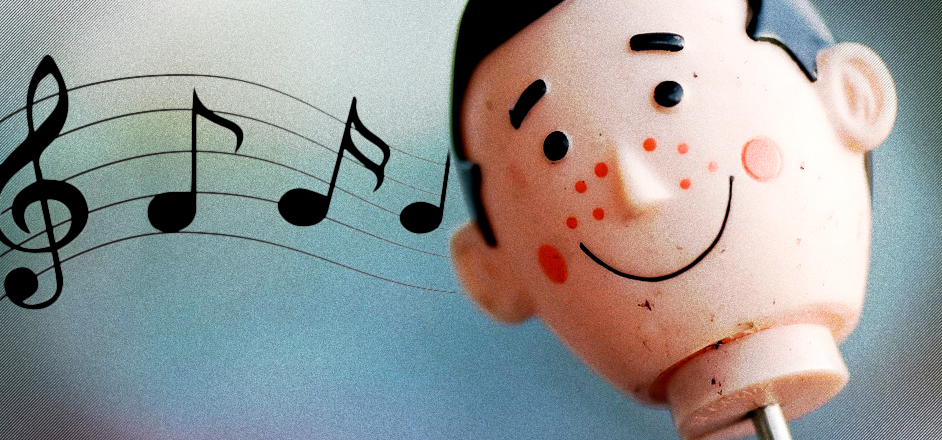Smart people just opened up a whole new world to the understanding of music …
Smart people, for the most part, have only been able to hypothesize the effects of music on the brain. For years, it's been understood that yes, music enhances mood, de-stresses an otherwise chaotic lifestyle and also has the potential to bring people together in meaningful ways through emotional connection. But those were never conclusively proven, until now. A few brainiacs in psychological studies recently showed without a doubt that music affects the brain much in the same ways taking drugs or having great sex does.
"This is the first demonstration that the brain's own opioids are directly involved in musical pleasure,” says cognitive psychologist Daniel Levitin, senior author of the paper.
It's fascinating how they figured it out, too. What the researchers at McGill University did was give participants a drug called naltrexone — the very same substance doctors administer to addicts for killing off any feelings of pleasure when they, say, shoot heroin. It basically numbs the brain's endorphin receptors, turning whomever takes it into a emotionless zombie not unlike every ex you have from the past 5 years.
"Naltrexone primarily blocks the mu-opioid receptors in the brain," says Adiel Mallik, a PhD Candidate in Professor Levitin's lab and first author of the study via email. "This prevents endogenous opioids (naturally occurring opioid production) such as endorphins from binding to the receptors preventing the downstream physiological effects of opioids (euphoria, pain relief, etc.)."
See, your body produces highly illegal narcotics naturally. But when they're made inside of you instead of a dumpy warehouse in the desert, the chemicals are greatly in charge of the way everyone experiences the outside world. Pain, pleasure — these are things controlled by your internal computer, your brain. Powering that system down makes all kinds of strange things happen.
Because when the researchers had everyone listen to two songs after turning off their pleasure valves with the naltrexone, and then evaluated their cathartic responses, the team themselves were even taken aback by the responses. To some, it was like they had heard the song, but claimed it meant absolutely nothing compared to before. They'd gone numb.
“The findings, themselves, were what we hypothesized,” Levitin continues. “But the anecdotes — the impressions our participants shared with us after the experiment — were fascinating. One said: ‘I know this is my favorite song but it doesn't feel like it usually does.’ Another: ‘It sounds pretty, but it's not doing anything for me.’”
Examples of songs chosen by participants include: "Lonely Boy" by The Black Keys, "Primavera" by Santana, "Creep" by Radiohead, "Turn Me On" by David Guetta featuring Nicki Minaj, "Comfortably Numb" by Pink Floyd and Overture: The Marriage of Figaro by Mozart.
The paper's findings "add to the growing body of evidence for the evolutionary biological substrates of music," the paper reads. After all, music is one of the few things that's paralleled the evolutionary process through tens of thousands of years, and continues to be a huge part in the understanding of past cultures and our own. To see that our brains are directly connected to music opens up an entirely new world of understanding (and questions).
The team doesn't plan to stop there either. Mallik adds that "another area of interest would be to see how opioids interact with other neurochemical systems such as dopamine with regard to musical reward." There's a massive map to figure out that is the brain, and a cornerstone study like this only touches on vast possibility.
So whether or not you'd like to admit it, when you're riding around alone in your car or out to a festival with 20 friends listening to music, you're basically taking drugs.
Let's just hope it stays legal. Sorry mom.



Leave a Reply